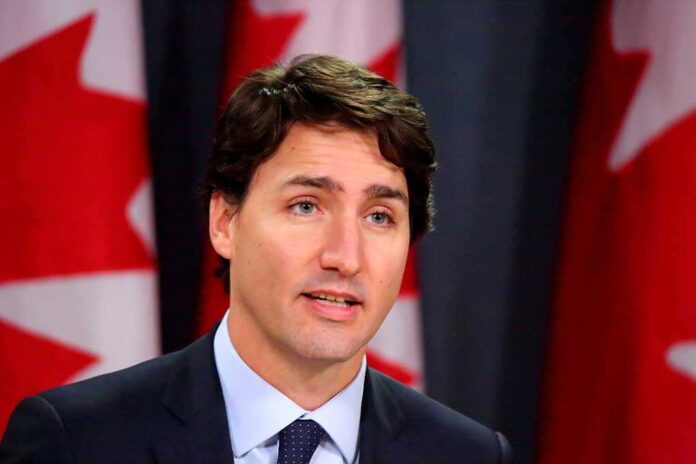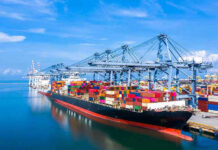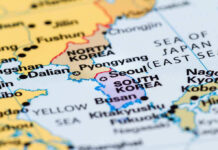
Political tension mounts in Canada as Trudeau faces increasing calls for resignation amid cabinet disruptions.
At a Glance
- Chrystia Freeland resigned, challenging Trudeau’s leadership.
- Trudeau’s approval ratings plummet as internal and external pressures grow.
- Opposition parties seek an election, backed by critical public sentiment.
- Canada faces economic challenges with potential US tariffs looming.
Freeland’s Resignation and Internal Discord
Canadian Prime Minister Justin Trudeau’s leadership is under scrutiny following the resignation of Chrystia Freeland, a major political figure and former finance minister. Her departure stemmed from disagreements with Trudeau concerning fiscal strategies and impending trade challenges, including potential US tariffs under Donald Trump’s administration. Her resignation letter criticized Trudeau’s short-term economic policies, emphasizing the need for Canada to reevaluate its approach.
This upheaval highlights internal dissatisfaction within the Liberal Party. Senior party members, once supportive of Trudeau, now express doubts about his leadership, bolstered by recent regional electoral setbacks. Anticipation builds around potential successors like Mark Carney and Dominic LeBlanc, both poised to influence the party’s direction should Trudeau resign.
Chrystia Freeland resigns from Trudeau's cabinet, sparking political chaos in Canada 🇨🇦
🎯 Betting markets now eye Trudeau’s exit
📉 $60K in bets say he steps down by Friday
🔥 Opposition fumes as economic plans left in limbo— Bitcoin.com News (@BTCTN) December 17, 2024
Opposition’s Stance and Public Sentiment
Opposition parties, including the Conservatives and the NDP, have seized on the crisis to demand Trudeau’s resignation and a federal election. Pierre Poilievre, the Conservative leader, cited government instability as a driving factor for an immediate electoral decision. Public opinion matches this sentiment, as Trudeau’s approval rating has dipped to 22%, while his main political adversary, Poilievre, nears 43% approval.
The political atmosphere has drawn greater scrutiny regarding Trudeau’s policies, particularly as Canada prepares for a potential “tariff war.” Analysts argue that Freeland’s resignation reflects broader cabinet discontent, increasing the calls for change. Some MPs now advocate for Trudeau’s departure, hoping for revitalized leadership.
Prime Minister Trudeau’s time in office may be coming to an abrupt end after two high-profile resignations from the cabinet have thrown his government into chaos. https://t.co/d69pWacbo5
— The New York Sun (@NewYorkSun) December 16, 2024
Economic Concerns and Future Implications
Canada faces significant economic concerns, adding pressure on Trudeau’s administration. A new fiscal report projected a $61.9 billion deficit, further complicating Trudeau’s political agenda. Moreover, the trade landscape grows potentially hostile as Trump announces a 25% tariff on Canadian goods, making economic strategy a cornerstone of current political debates.
This uncertainty leaves Trudeau contemplating options like resignation or proroguing Parliament. Analysts suggest imminent ministerial exits could force his hand. The Canadian populace awaits its next election cycle, speculating on leadership changes that may redefine the nation’s political landscape. Trudeau’s enduring legacy remains uncertain, as Canadians navigate this pivotal moment.
Sources:
- Will Trudeau resign? Four paths Canada’s prime minister could take
- Canada’s deputy PM resigns from cabinet as tensions with Trudeau rise over Trump tariffs
- Will Justin Trudeau Resign? How Trump Tariff Threats Led to Chaos – Newsweek
- Justin Trudeau ‘considering resignation’ after shock clash with finance minister | The Independent
- Some Liberal MPs repeat calls for Trudeau to quit after Freeland debacle — but he still has defenders | CBC News
- Canada’s finance minister quits over Trump tariff dispute with Trudeau












